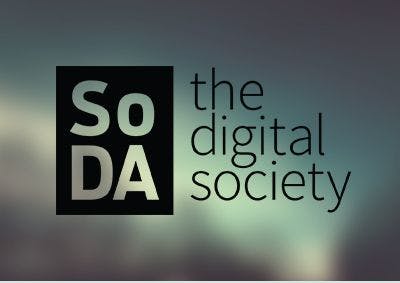Lessons Learned from the PewDiePie Mess

By Traction
Adam's take on the downfall of PewDiePie.
After YouTube canceled its top star PewDiePie's show on Tuesday over his anti-Semitic jokes, Our CEO, Adam Kleinberg, was interviewed for an article published on the Wall Street Journal by Jack Nicas. The following article is a follow-up originally published on AdWeek .
Disney and YouTube are both catching heat this week because of their association with the reigning king of YouTube influencers, PewDiePie.
They both deserve it.
Influencer marketing is the buzzword du jour for advertisers right now. Brands hunger for the authenticity that content created by genuine fans can bring. Keeping it real is important during a time when people rely more on one another to form opinions about brands than they do from brands themselves.
But many marketers suffer from Shiny Object Syndrome. It makes them abandon rationality to claw onto the hottest marketing trend. For a sunshine-and-rainbows brand like Disney to partner with a ranting narcissist like PewDiePie is clearly irrational.
Worse, it's irresponsible. Disney pulled its sponsorship of PewDiePie when confronted about a slew of posts since August that contained anti-Semitic content. PewDiePie has claimed that the posts in question were in poor taste, but were just crude jokes—a modern-day Springtime for Hitler . Yet, these videos just scratch the surface of inappropriateness in this adaptation of "The Producers."
Just look at PewDiePie's videos from the past week with an adult eye—in one, he acts like the Donald Trump of teenage temper tantrums, using his platform to mock another YouTuber like a petty megalomaniac; on Valentine's Day, he played a video game called "Butt Sex with Cacti."
Ouch.
Seriously, ouch.
Of course, Disney was not the only brand that may have moved blindly to advertise with PewDiePie. When I visited his channel two days ago, before he got the boot from YouTube, I saw a pre-roll ad from Geico (but couldn't be sure if it was randomly served or an intentional buy). The truth is that many brands aligned themselves with his content.
YouTube is not innocent here at all. Their influencer program is supposed to provide a brand-safe place to connect with online audiences. Clearly, in this case—and this was a very big case—it wasn't.
There is a lot of money in the influencer space right now. In an Adweek story Wednesday, James Nord, the CEO of Fohr Card, an influencer-marketing platform said, "This doesn't have to be a red flag for the industry to pump its brakes."
Right. What else would he say?
At Traction, the agency I run, we do work with influencers. We're not about to stop working with YouTube anytime soon, but the risk factor is a reality. The onus is on us to carefully vet talent we recommend and clearly communicate risk to clients.
Yet marketers have either been raising their threshold for risk or looking the other way. Why? Because big brands are desperate—in a variety of ways.
Desperate for authenticity
We live in a time of massive distrust in institutions of power. Even the president of the United States is a liar. A 2015 study by Ipsos and the 4As showed that just 4 percent of Americans believe the marketing industry behaves with integrity.
Brands want to be trusted and they want to be cool, but many don't know how. When done in an authentic way, partnering with influencers can help. When done carelessly, however, it can hurt your brand.
Desperate for scale
Advertisers have relied on TV to reach mass audiences for the past 50 years and today, those mass audiences are evaporating. Even the NFL saw a 10 percent loss in viewership this year.
So, advertisers are desperate for scale. They see a cultural phenomenon with 55 million followers (who clearly think he's hilarious), and they are willing to roll the dice and overlook the fact that this guy is clearly unhinged.
Desperate for speed
There is a myth that, to succeed today, brands have to constantly create content and do it fast. This applies to influencer marketing as well—which is why we're seeing a proliferation of ways to make it fast and easy for brands to work with influencers, from influencer management platforms to YouTube's program.
Fast and easy, however, means less control. Which means more risk. Not just of the occasional bad apple, but that you will dilute the very authenticity you are seeking from working with influencers in the first place.
What rails will you put up to mitigate that risk?
Adam Kleinberg (Twitter: @adamkleinberg ) is CEO of Traction, a digital agency based in San Francisco.

Traction was elected as SoDA’s newest member in the latest round of voting by their global membership. We are excited to be joining this select, invite-only group of digital innovators from around the world.

The potential for artificial intelligence (AI) to soon become a powerful tool in the CMO toolkit is very real.

Traction's "I Fixed It" video was featured on the Drum.